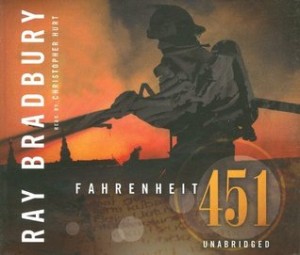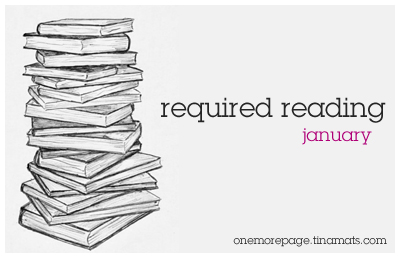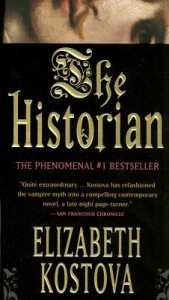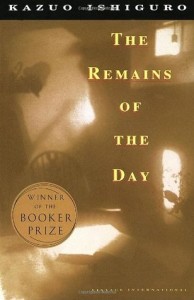 Fahrenheit 451 by Ray Blackbury
Fahrenheit 451 by Ray Blackbury
Publisher: Blackstone Audiobooks
My copy: Unabridged Audiobook
Fahrenheit 451 is set in a grim alternate-future setting ruled by a tyrannical government in which firemen as we understand them no longer exist: Here, firemen don’t douse fires, they ignite them. And they do this specifically in homes that house the most evil of evils: books.
Books are illegal in Bradbury’s world, but books are not what his fictional — yet extremely plausible — government fears: They fear the knowledge one pulls from books. Through the government’s incessant preaching, the inhabitants of this place have come to loathe books and fear those who keep and attempt to read them. They see such people as eccentric, dangerous, and threatening to the tranquility of their state.
But one day a fireman named Montag meets a young girl who demonstrates to him the beauty of books, of knowledge, of conceiving and sharing ideas; she wakes him up, changing his life forever. When Montag’s previously held ideology comes crashing down around him, he is forced to reconsider the meaning of his existence and the part he plays. After Montag discovers that “all isn’t well with the world,” he sets out to make things right.
* * *
There were several times when my bookish friends and I would joke around about burning some books that we don’t like, especially that vampire series that just doesn’t seem to want to die (or well, I think other books are replacing it now?). It’s really all just a joke, because for the life of me, I can’t imagine myself burning a book, no matter how much I disliked/hated it. I remember this one time where I heard of a book being torn in front of some people in school — some hater getting at it at the face of the authors — and even if I didn’t witness it first hand, my heart hurt just a little bit at the thought of a book being damaged like that.
in Ray Bradbury’s Fahrenheit 451, doing such things to books are a commonplace. Books are illegal, and firemen go around hunting for books (and houses of books) to burn. Everyone’s focused on television and other seemingly mindless things, and anyone who thinks otherwise are considered dangerous. Guy Montag is a fireman, and he has lived with burning books, until he meets his neighbor, Clarisse. Clarisse makes him ask questions about his life — his wife, his job and all the question about books. He slowly realizes that maybe his life wasn’t really what he wanted it to be and sets out to do something about it.
It’s been a while since I read a dystopian book, so it took me a while to adjust to Fahrenheit 451‘s world. Since I was listening to this on audio, it took me an even longer time to really get into it. I liked the premise of the book, and as a book lover, Montag’s world felt depressing. I didn’t want that, and when I got to the chapter where Montag and his firemen buddies burned a house of books, I was wincing all the time. Ack. Perhaps there’s also something about the way Bradbury writes (and how the book was narrated) — the rhythm of his words felt almost hypnotic. I suppose it helped that I listened to the audiobook, because I thought the narrator had a very fitting voice for the story.
I liked Fahrenheit 451, and I think that it’s still quite relevant now. Bradbury wrote this book as a statement about how “…television destroys interest in reading literature,” and while that is still true, I think that there’s another competition that’s really taking everyone’s interest: internet. I mentioned during our book discussion how everyone’s so attached to being online now — myself included. I remember reading this story about the mom who gave his teenage son an iPhone for Christmas but with a contract, and this particular line in the contract got to me: Turn it off, silence it, put it away in public. Especially in a restaurant, at the movies, or while speaking with another human being. You are not a rude person; do not allow the iPhone to change that. (Source) I’m very guilty of this, and I’m trying to get rid of this habit, and I realized that our attachment to our smart phones and internet is another way for us to lose interest in reading. I mean, I haven’t lost interest yet, but how many times have I ended up playing with my phone, going online in all my social media accounts on the times I said I would be reading? How many times have I chosen tweeting over making an effort to make actual conversation? Those kinds of things. It’s a bit disconcerting to think about it, but I guess that’s the point of this book, anyway. It’s definitely something to think about.
I just wished there was more to Fahrenheit 451‘s ending. I wished there was more to know about the people who memorized books so no one would ever forget them, and that it didn’t simply feel like an afterthought to the story. The ending kind of reminded me of The Giver — a bit open-ended, but good enough to leave the reader asking some questions. Especially questions like, If I can only memorize one book and one book alone, which would I pick? I do not have an answer to that question. Do you?
Rating: [rating=4]
Other reviews:
Book Rhapsody
marginalia








